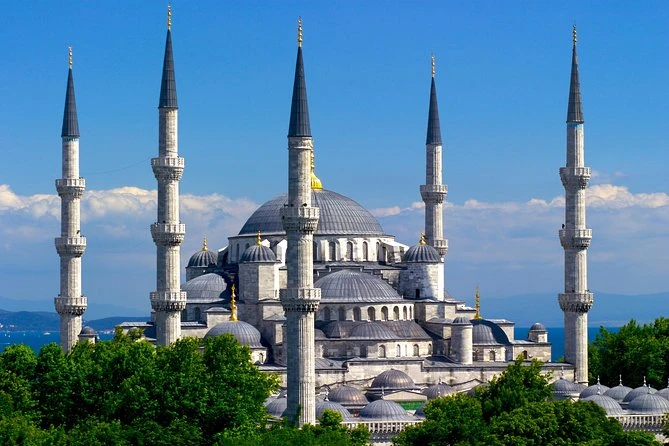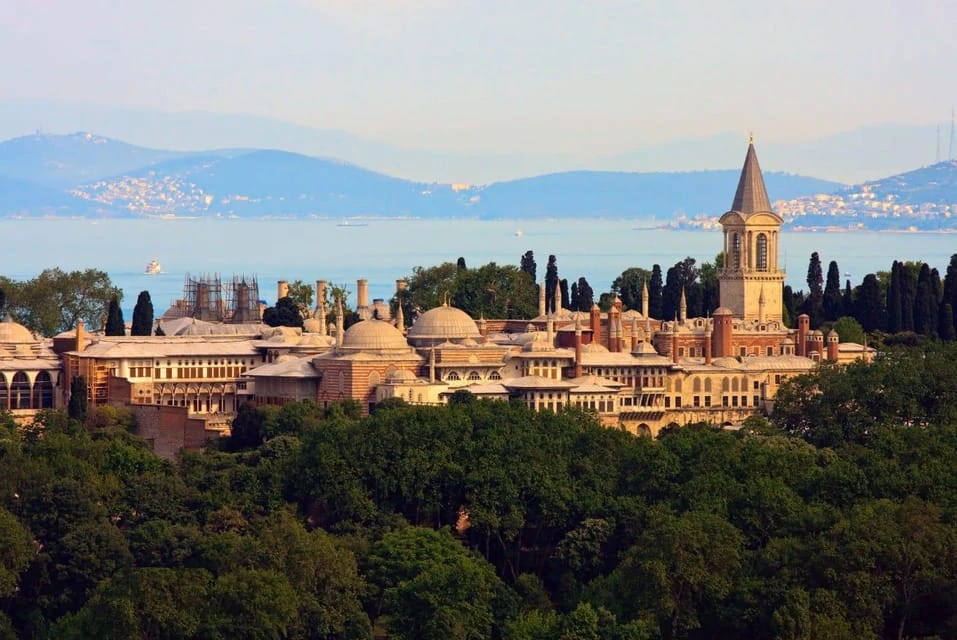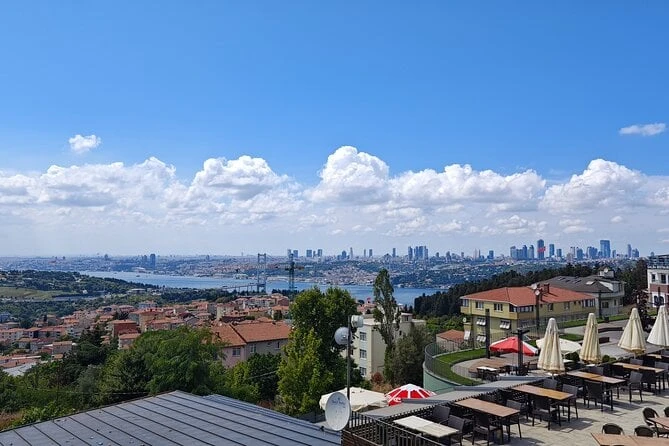Planning a trip to Turkey is exhilarating, simply because of how many incredible places this country has, what rich people it has in terms of culture, and how diverse its landscape is. Be it the explorer of ancient ruins, a sunbather on beautiful beaches, or one who enjoys good local food, Turkey has something to offer every kind of traveler. But to enjoy the trip, you have to think about some important key factors, such as the best time to visit, visa requirements, top destination choices, and travel logistics. This guide will take you through arranging an itinerary for the highlights while offering some insider tips to make it a smooth-running Turkish adventure.
The Most Popular Destinations in Turkey:
1. Istanbul
More than a city, Istanbul is an aspiration of what Turkey's largest, modern, indeed historical, and into culture; it has such places as the Hagia Sophia and Topkapi Palace, the Blue Mosque, and the Grand Bazaar. The city spans two continents: Europe and Asia. Making it unique in both geography and culture. the market noise, neighborhoods, and views from the waterfront—will set up Istanbul as a must-see.
2. Cappadocia
Famous mostly due to its unusual rock formations, fairy chimneys, and cave dwellings, Cappadocia is coming into the forefront because much of it is exposed to hot air balloon rides over the scenery at dawn. Other fascinating and intriguing sites the region has to offer include Göreme National Park and the underground cities that date back to ancient times. Without a doubt, a must-visit destination for nature lovers and history buffs alike.
3. Pamukkale
Also known as "Cotton Castle," and underneath it was the reason for so much fame: the thermal pools that look pure white, which are extremely high in calcite and allow visitors to sit in them for long periods without feeling the warm mineral water while enjoying the views. Close by are ruins from the ancient city of Hierapolis.
4. Ephesus
Ephesus boasts some of the most well-preserved remains from one of the ancient cities around the world. It was home to impressive boasts such as the Library of Celsus, the Temple of Artemis (counted as one of the Seven Wonders of the Ancient World), and the Great Theater, where St. Paul is said to have preached. This UNESCO World Heritage site significantly gives an insight into the Roman aspect of life and will certainly be worth it for history buffs.
5. Antalya
Antalya boasts beautiful beaches, crystal-clear waters, and ancient sites, making it part of the famous Turkish Riviera. Old Town (Kaleiçi) features cobblestoned streets lined with Ottoman-era buildings alongside other attractions like Termessos and Perge, while Antalya is just perfect for more sun, sea, and history.
6. Bodrum
Bodrum is a resort town on the Aegean Coast that is lively and vibrant with its nightlife. Apart from the beautiful beaches, Bodrum is a destination for vacationers mostly because of its historical sites, such as the Mausoleum at Halicarnassus (one of the Seven Wonders). Visitors can flock to Bodrum for Bodrum Castle and the Underwater Archaeology Museum.
7. Fethiye and Oludeniz
Fethiye is an enjoyable coastal city that boasts awesome beaches like the famous Ölüdeniz Lagoon, which is recognized all over the world. Ölüdeniz is one of Turkey’s most photographed beaches due to its stunning blue waters and surrounding mountains. With the nearby Butterfly Valley and the ancient Lycian rock tombs, it makes for scenic and historical excursions.
8. Trabzon and the Black Sea Region
Sample of natural beauty together with scant tourists, the Black Sea Region would boast lush forests, falls, and lovely villages. Trabzon is also along the coast and acts as a base from which one can undertake exploration to Sumela Monastery, a splendid Greek Orthodox monastery sunk into cliffs, and Uzungöl, the beautiful lake.
9. Izmir
The lively coastal city of Izmir is almost synonymous with a friendly-relaxed atmosphere, beautiful beaches, and historical places. The Agora of Smyrna and Kadifekale Castle reveal the city’s ancient past. Kemeralti Bazaar gives an insight into local culture. It can be a launch pad to nearby sites such as Ephesus and Çeşme.
10. Gallipoli Peninsula
The historical site known for its criticism within the World War I context is dedicated to memorials and cemeteries for soldiers of the Gallipoli Campaign. ANZAC Cove and Gallipoli National Park likely remain within the hospice of the foray, a visit to remind one of the war's toll on this region.
When is the best time to visit Turkey?
The best time to visit Turkey depends on your interests and the sort of experience you want to have. Spring, which lasts from April to June or falls before November, is ideal for sightseeing because there is mild weather, allowing you to stroll through cities, famous historical sites, and amazing natural wonders comfortably. On the other hand, summer, which lasts from July to August, is ideal for beach lovers or coastal locations who want to experience hot weather with a larger crowd. Then you have winter, which takes place in December, January, February, and even March, during which those seeking to travel on a budget will find their way to Turkey as it would be the low season with few tourists and discounted prices, plus chances for winter sports activities at places like Uludağ and the snow-covered Cappadocia.
Tips & Things to Keep in Mind to Visit Turkey
1. Visa Requirements
Most visitors to Turkey will need a visa, which is usually available online through the e-Visa system, before travelling. Always check the requirements of your nationality well in advance to avoid any nasty surprises.
2. Weather Considerations
Turkey has really different climates, so pack according to them. Coastal areas like Antalya and Bodrum can be hot on midsummer day whereas it gets pretty chilly, especially in the winter, inside places like Cappadocia and Ankara. Always check out the weather forecast and pack your clothes right.
3. Cultural sensitivity:
Turkey is mainly Muslim; it has conservative and liberal views. When entering religious places like mosques, make sure your dress is modest (cover the shoulders and knees), and be careful to practice the local customs, such as removing shoes going into mosques.
4. Currency and Payments:
The local currency is the Turkish Lira (TRY). However, major credit cards are widely accepted in cities and tourist areas. It may also be advisable to carry some cash for purchases at smaller shops, in rural areas, or for use in areas where cards may not be accepted. Currency can be readily exchanged at the airports, banks, or exchange offices.
5. Language:
Turkish is the official language, but one would find that English is widely spoken in the tourist areas of Istanbul, Cappadocia, and Antalya. A couple of elementary Turkish terms like "Merhaba" for hello or "Teşekkür ederim" for thank you can go a long way in proving respect for the local culture.
6. Transportation:
Turkey has an excellent public transport system, including buses, tramways, and metro networks in its major cities like Istanbul. For long-distance journeys, consider high-speed trains or domestic flights. Taxis are also readily available, but always ensure they use the meter or agree on a fare before starting the journey.
7. Health and Safety
Turkey is comparatively safe for tourists, but it is vital, just as in any travel destination, to remain aware of one's surroundings. Avoid drinking tap water and instead use bottled water. Follow other general precautions regarding using insect repellent and sunscreen for the summertime.
8. Observe Local Customs and Traditions
Turkish society is reputed for its generosity in hospitality and for the warmth of people. Most visitors are generally welcomed cordially. If you are invited to someone’s house, tea or coffee will generally be offered, and you are expected to take it. Remember that Turkey is both modern and traditional, and so, wherever you are, be respectful of local customs, especially in rural or conservative areas.
9. The Major Attractions Timing
Popular tourist sites such as Hagia Sophia, Ephesus, and Pamukkale tend to fill to bursting with other visitors, especially during the high seasons: summer and holidays. Plan to visit the sites early in the morning or later on in the afternoon so that you can enjoy them with hardly any other visitors around and at peace.
Turkey has a beautiful setting that gives a memorable experience of old history, culture, and nature. It encompasses places from bustling Istanbul streets to the serene beaches of the Turkish Riviera, from the surreal scenery of Cappadocia up to the healing waters of Pamukkale. Travelers of every possible interest will find something to suit them. You could be a history buff, a nature lover, or a glutton; the country only promises a rich and diverse experience. Warm hospitality, deep-see cuisine, and so many attractions—surely, Turkey Packages will leave you with indelible memories and a yearning to return. As we prepare our suitcase, let's embrace the adventure and allow Turkey to lure us.












-webp.webp)
-webp.webp)

-webp.webp)



